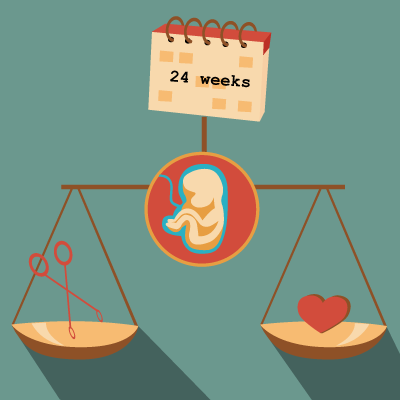
Lawtitude
Impact and Significance of the Change: A New Era for Abortion Rights in the UK
 Introduction
Introduction
Abortion Laws in the UK are primarily governed by the Abortion Act, 1967, which legalises abortion until 24 weeks of gestation when approved by two doctors and in cases of risk to the life of the pregnant woman, preventing grave permanent injury to her physical or mental health, risk of injury to the physical or mental health of the pregnant woman or any existing children of her family (up to a term limit of 24 weeks of gestation), or substantial risk that, if the child were born, they would “suffer from such physical or mental abnormalities as to be seriously handicapped”.
On 7th December 2023, a new bill was introduced in the British Parliament by Caroline Ansell, which aims to reduce the gestational time for legal abortions from 24 weeks to 22 weeks. The bill’s proponents argue that advancements in medical technology have made it possible for babies born at 22 weeks to survive, thereby justifying the reduction. However, the proposal has been met with significant backlash from various communities, who view it as an attempt to restrict women’s reproductive autonomy. The bill also prohibits terminations beyond 24 weeks if the sole reason is a diagnosis of Down syndrome, which has raised concerns about the potential increase in prosecutions of women who terminate pregnancies beyond the legal limit.
Significance of the change
The reasoning behind the reduction of gestational age up to which abortion is legalised can be understood in two separate ways. The first factor is the safety and health of women. It is widely understood that the increase in gestational age shall lead to a reduction in medical abortion efficacy and might also lead to risk of complications and higher chances of emotional and psychological impact. Focusing and prioritising the health of the women would be a welcome change. Furthermore, such a reduction runs in line with the moral understanding that no
person has the right to curtail another’s natural life and as per C v. S, an abortion can be justified up to the foetal age where the foetus is unable to sustain itself independent of the mother. It is to be noted that doctors and medical professionals have suggested the reduction of gestation time limit acknowledging the development in technology that has significantly increased the survival chances of premature babies.
However, such reductions and limitations shall also lead to inaccessibility of the abortion process. An unpopular opinion on the matter is that reduction of gestation period does not reduce the number of terminations but rather reduce the level of safety. This is because a lot of women are, as a consequence of the gestation period limitation, made to proceed with illegal terminations outside medical facilities.
Criticism
A major reason behind support in favour of the bill was for the reduction of the number of abortions in the region. However, studies show that the number of abortions made close to or past the previous upper limit are very less. Hence, it is reasonable to presume that such further reduction of the upper limit would bring a very insignificant change. Lord Steel also defended the legality of abortion till the period of 24 weeks.
Adding to the prior mention of the possibility of increased abortions being done illegally, the reduction can also mean that the woman is put in a very difficult circumstance with respect to her pregnancy. Foetal abnormalities are often not deductible until a 20-22 week scan and women need time to consider their options, as confirmed in the C v. S case.
Furthermore, any reduction in the limit can affect vulnerable women, especially those in remote areas with limited access to healthcare. Delays in accessing services are common for these women.
Adding on to this, the concern as raised by the Royal College of Obstetricians and Gynaecologists and other medical experts is also to be noted. They argue that the law should not impose rigid time limits that override a doctor’s clinical judgement in each case.
Home Secretary of Britain James Cleverly has also voiced his concern against the reduction of time limit, stating that he is “pro-choice” and he believes that safe and legal access to abortion is important.
As understood from the case of Regina (British Pregnancy Advisory Service) v. Secretary of state for Health and Social Service, taking the second pill or performing the surgical procedure amounts to abortion which essentially presses the state of women who decided to otp for abortion within the 22 week period but the extended formality can not be accommodated within the 22 week period window which leads to amendment bill to be rather
Conclusion
The abortion bill, though aimed at reducing the number of abortions carried out at a time when the foetus is capable of surviving outside the womb, does not adequately represent the same. It is an attempt to curtail the reproductive autonomy of a woman and makes no attempt to decriminalise abortion. The bill is also being used as a medium to criminalise abortion even in cases where there is a substantial risk that the baby would be born with severe deformities or abnormalities like Down Syndrome.